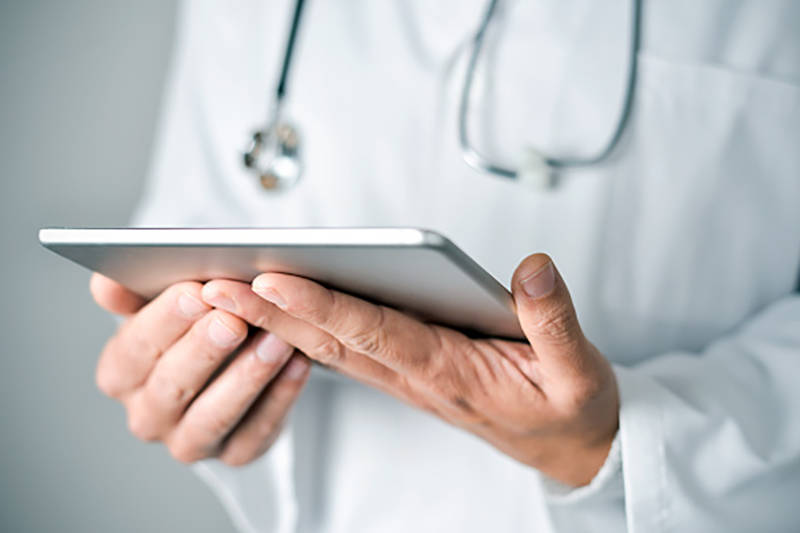
From state-wide lockdowns to mandatory health and safety measures, the COVID-19 pandemic changed the way we work, live and play, and unfortunately, has resulted in severe illness and death for many. Since January of 2020, there have been about 32 million reported cases of COVID-19 and about 570,000 total deaths from the virus in the United States. Specific populations of people are at higher risk of getting severely ill or dying from the virus. Among these are adults 65 or older, people with underlying health conditions and people with disabilities. In addition, people in vulnerable populations and some racial and ethnic minority groups are disproportionately affected by COVID-19.
Fortunately, scientists and public health experts around the world worked tirelessly to develop vaccines to help prevent people from getting sick from COVID-19, several of which have been authorized for emergency use by the U.S. Food and Drug Administration (FDA). These vaccines have been evaluated in clinical trials that have involved tens of thousands of participants and have met the FDA’s rigorous scientific standards for safety, effectiveness and manufacturing quality.
COVID-19 vaccines are a key step in slowing the spread of disease and ultimately stopping the pandemic.
However, despite their proven safety and efficacy, there may still be hesitancy and concern around receiving the vaccines. Some of the most common reasons people avoid getting the vaccine are misinformation about their ingredients, the science behind them and fear about adverse effects.
I highly encourage everyone eligible to get a vaccine to stay healthy and protect the people around you. Do it for yourself, your family, friends and community.
Getting vaccinated is the quickest way to get back to the things you did before the pandemic. To address potential points of hesitancy, here are a few key things to know:
■ The vaccines currently approved for use in the U.S. are effective at preventing COVID-19.
According to the Centers for Disease Control and Prevention (CDC), several large-scale clinical trials and subsequent real-world experience shows that the COVID-19 vaccines prevent most people from getting COVID-19. Based on data from clinical studies, COVID-19 vaccines also help keep you from getting seriously ill, even if you do get infected. People are considered fully protected two weeks after their second dose of the Pfizer-BioNTech or Moderna COVID-19 vaccine, or two weeks after the single-dose Johnson &Johnson’s Janssen COVID-19 vaccine.
■ The COVID-19 vaccines available are safe.
To date, over 231 million Americans have been vaccinated with the number increasing every day. The U.S. vaccine system has an extensive testing process to ensure the vaccines are as safe as possible and made with safe ingredients. The vaccines cannot give you COVID-19 as they do not contain the live virus that causes it. Most reported side effects have been mild and moderate; minor side effects are not uncommon. These side effects are part of the vaccine working, and usually go away in a couple of days.
■ There have been some serious side effects but they are rare.
More serious allergic reactions have been reported with the mRNA vaccines (Pfizer-BioNTech and Moderna) but they are rare. These allergic reactions occur in less than one case per million vaccinations.
The use of Johnson &Johnson’s Janssen COVID-19 vaccine was put on hold but has resumed. Medical and scientific teams with the FDA and CDC did a thorough review that found the vaccine is safe and effective in preventing COVID-19. As of April 23, 2021, out of more than 7.98 million doses administered, the FDA and CDC found a total of 15 cases post EUA authorization of severe blood clot in people after receiving Johnson &Johnson’s Janssen COVID-19 vaccine. Experts estimate that for every 1 million persons vaccinated with the Janssen vaccine over 2,000 deaths from COVID-19 will be prevented and over 6,000 hospitalizations from COVID-19 will be prevented. In contrast, for every 1 million persons vaccinated with the Janssen vaccine an estimated 2 persons will develop the severe thrombosis (clot) with low platelets.
■ Vaccinations help us build population immunity, which will help end the pandemic.
Although we are still learning how many people must be vaccinated against COVID-19 before society can be considered protected, it is promising to see upward movement and collaborative efforts across the world to ensure everyone gets vaccinated. Everyone getting the vaccine who can, as it becomes available to them, will help end the pandemic and get us back to doing the things we love – and seeing the people we love.
■ Take the next step: Get vaccinated
If you have concerns about getting vaccinated, get informed with accurate information. Talk with your doctor or visit Optum’s vaccine resources at OptumCare.com or Vaccines for COVID-19 (cdc.gov) for more information.
Jim Wang, D.O., is with Southwest Medical’s Pahrump Healthcare Center.